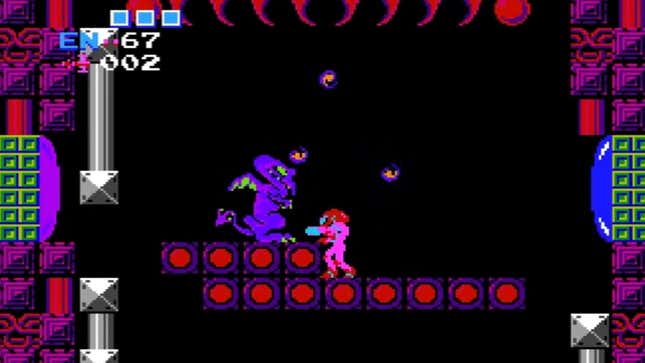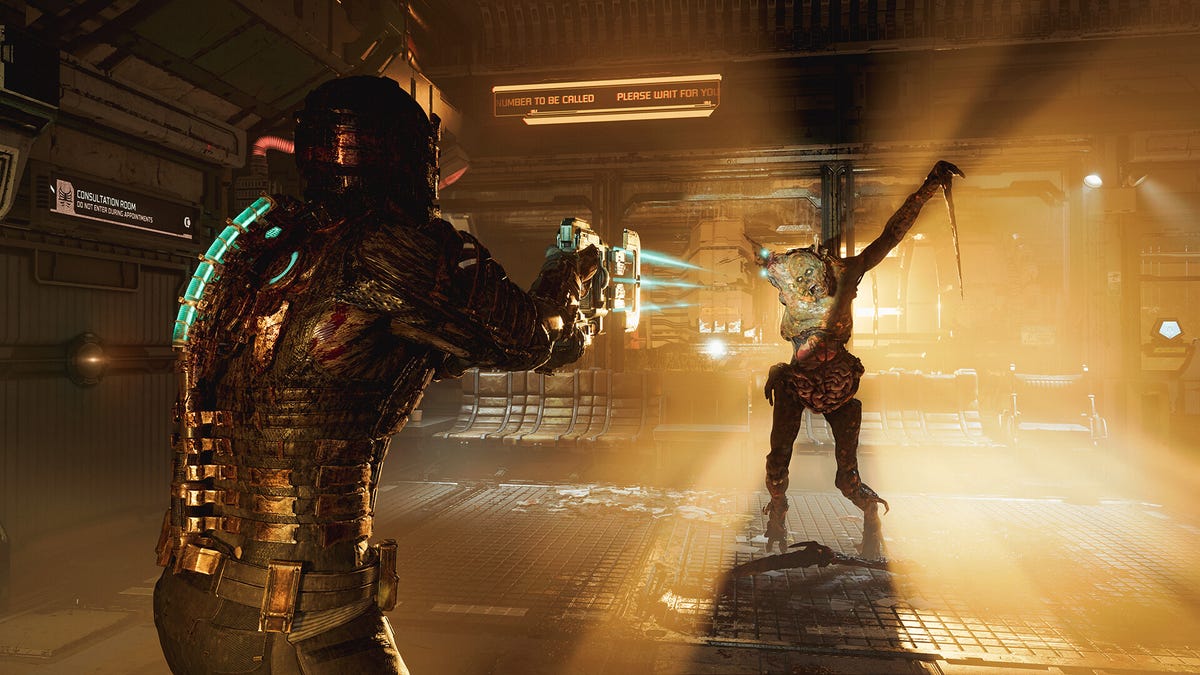I’d skulked my way through the dark corridors of the Ishimura, holding my breath the entire time. Never forgetting that at any moment, a deadly necromorph could pop out from the vents and make short work of me, I held my weapon aloft all the while. If I chanced upon an explosive canister, I’d use kinesis to carry the precious treasure with me until I found some monstrosity to hurl it at, engulfing them in flames. Though I upgraded my weapons at every opportunity, I always felt vulnerable, as the enemies I faced seemed to grow stronger just as I did. Finally, after many, many hours of slow, cautious progress and no shortage of grisly deaths, I finished the game and unlocked the new game plus option. Deciding to give myself a little taste of what the early game would feel like with all my upgraded gear, I immediately had a very different experience aboard the doomed planet cracker, one that reminded me that sometimes, feeling wildly overpowered in a game is awesome.
Look, I like challenge in my games. If a game showers me with rewards or lets me cut through enemies like a hot knife through butter right off the bat, it’s unlikely to hold my interest. It was the fact that the recent Dead Space remake had first forced me to face my fears, to put myself in dangerous situations while always feeling like resources were fairly scarce, that had made it rewarding in the first place.
And now, returning to the early game with my fully powered-up plasma cutter, not to mention an awesome optional upgrade called the prototype stasis module that causes damage to enemies while they are frozen, I laughed in the face of the danger. I moved through those halls with confidence, unbothered by the shrieks of necromorphs charging at me. Now, I could freeze them in place and cut them down with one shot of my plasma cutter. It felt like Isaac and I had conquered our fears together, like now we could return to those once-menacing halls and say, “You have no power over us.” If the game had started this way, it would have felt gross, pandering. But because of what I’d gone through to get to this point, it felt like I’d earned it.

G/O Media may get a commission
When I was growing up with games (I’m old), balance wasn’t the big concern in game design that it is today, and it was much more common to encounter both situations that were wildly unfair in their difficulty, and those that were wildly easy, if you were prepared for them. To keep things in the realm of foreboding science fiction, Nintendo’s original Metroid is not what I would call an easy game. It offers you no helpful automap, no clear sense of where to go, and there are so many enemies and environmental hazards that will absolutely wreck you if you’re not prepared. At the same time, however, if you explore and gather enough energy tanks and missiles, you can just stand there and tank bosses like Ridley and Kraid, enduring their damage output and killing them faster than they can kill you.
Does it make for “engaging gameplay”? Not by today’s standards, I guess, but I sure thought it was cool at the time. I’d diligently explored and navigated many dangers to find this gear and now I was reaping the benefits. I’d earned the ability to melt those bosses. Sometimes I think a fixation on concepts like balance is sanding some of the rough, lively edges off of modern games, turning everything into a finely tuned equation where a dash of imbalance could be more interesting. Returning to the Ishimura in Dead Space’s new game plus, it was a pleasure to freeze necromorphs in place with my upgraded stasis, fire a single bolt from my maxed-out plasma cutter, and watch them instantly die as a result of my huge damage output. I didn’t stick with it, though. Now the Resident Evil 4 remake is here, so I’m once again shooting deadly enemies with bullets that often feel ineffectual and running for my life. It’s only a matter of time, though, before I turn the tables on them, too.







